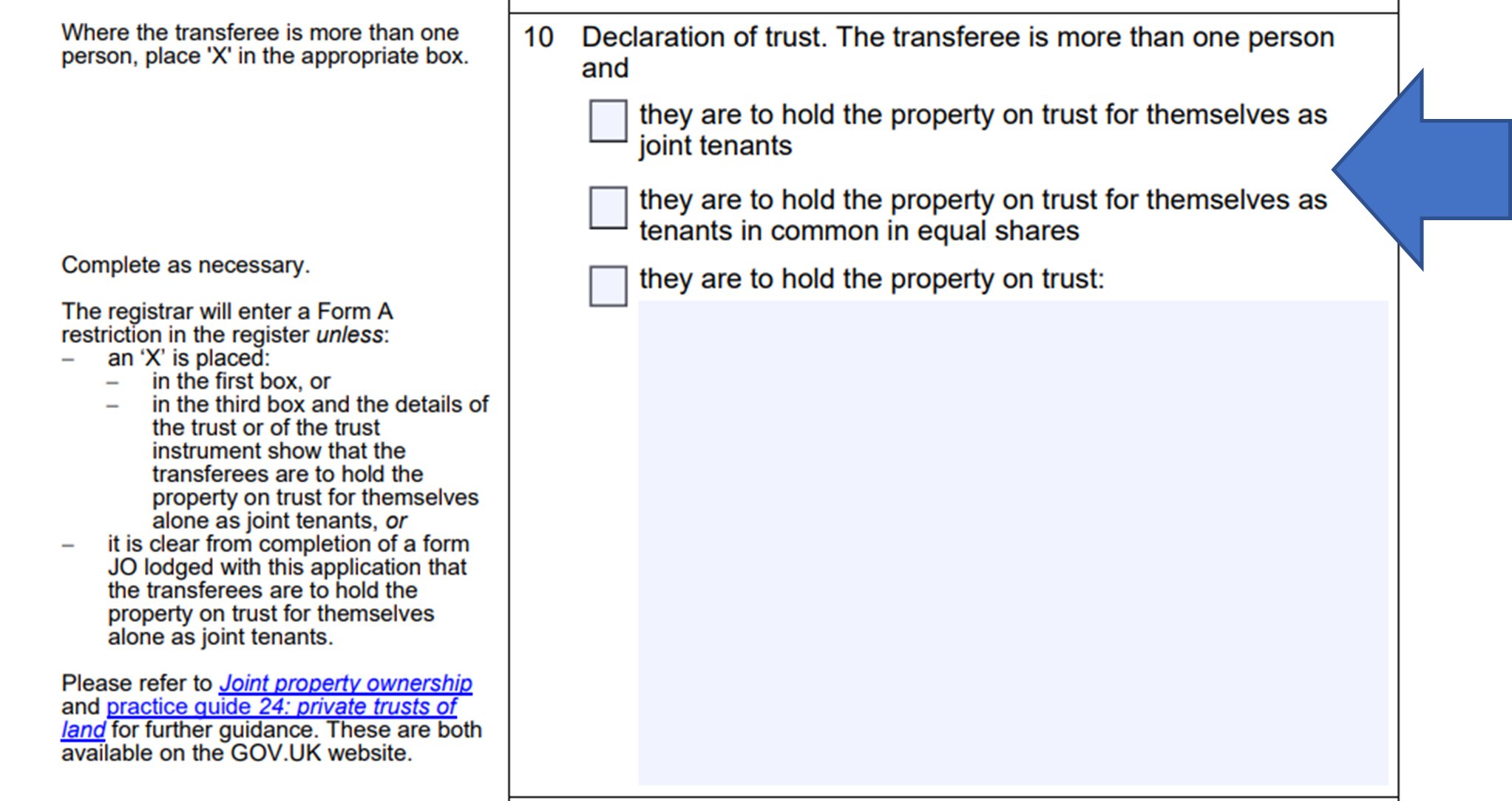What kind of joint ownership do I have?

Grand Warszawski/Shutterstock.com
People often call our Customer Support Centre to ask about joint ownership and if they can confirm whether they own their property as a ‘joint tenant’ or ‘tenant in common’ from looking at their copy of their register. Our Customer Support Centre staff are unable to tell you whether you are a joint tenant or tenant in common as it is not always definitely stated in our documents, but there are a few places you can check to try and find out.
There are a variety of documents relating to property ownership which may hold some information on the type of joint ownership you have. HM Land Registry often has copies of some of these, but not all. Before you bought your property, your solicitor or conveyancer should have explained the options to you and asked you to confirm what type of joint ownership you wanted. We always recommend you contact a solicitor or conveyancer to check the type of joint ownership you have if you’re unsure.
What do the terms ‘joint tenant’ and ‘tenant in common’ mean?
If you buy, inherit or become a trustee of a property with someone else, you must decide how you want to ‘hold’ the property together. There are two ways you can become a joint owner of property under UK law: as either ‘joint tenants’ or ‘tenants in common’.
The type of ownership you choose affects what you can do with the property if your relationship with a joint owner breaks down, or if one owner dies. Your conveyancer will discuss this with you and include your choice when they register the property with us.
Joint tenants
As joint tenants (sometimes called ‘beneficial joint tenants’):
you have equal rights to the whole property – neither one of you has a specific “share” in the property the property automatically goes to the other owner(s) if you die you cannot pass on your ownership of the property in your will it is much more difficult to sell the property without the agreement of all joint tenantsTenants in common
As tenants in common:
each of you will own a specified share in the property, which may or may not be an equal share (HM Land Registry does not always hold information on the specific shares each owner holds) the property does not automatically go to the other owner(s) if you die you can pass on your share of the property in your willDocuments that may hold information on your joint ownership
If you are looking for information on the type of joint ownership you have, this information may be held in the following documents.
| Sometimes held by HM Land Registry | Copies not usually held by HM Land Registry – ask your conveyancer about these documents |
| A property transfer
|
A 'trust deed', which is sometimes used to state each owner’s share in a property when they are tenants in common, particularly where joint owners are not related and pay different amounts of money for the property |
| A property lease | A will under which the property is inherited |
| A deed of gift | |
| Application forms sent to us when we registered the ownership, for example: application form FR1 application form AP1 form JO (if you were registered as joint owner(s) on or after 15 October 2012) | |
| Form RX1 and form SEV – both used to enter a restriction in the register |
We do not usually hold copies of the documents in the right-hand column, so you should ask your conveyancer about these documents.
How HM Land Registry records joint ownership
When we receive your documents from your conveyancer, we will check panel 10 of your Transfer (TR1) form to check whether you’ve chosen to be joint tenants or tenants in common. Therefore, it’s worth double-checking this panel when your conveyancer asks you to sign the form.

If you’ve chosen to hold the property as tenants in common, we’ll register a ‘Form A restriction’, which you will see in your title register. You will not see the words ‘tenants in common’ in your register, so here’s what to look for to see if you have this restriction:
“No disposition by a sole proprietor of the registered estate (except a trust corporation) under which capital money arises is to be registered unless authorised by an order of the court.”
If you choose to be joint tenants, no Form A restriction is added to your register.
If you don’t select either joint tenants or tenants in common on this form, or it isn’t clear to us which you have decided on, we must enter a Form A restriction by default. This is one reason why seeing the restriction in your title register doesn’t necessarily mean you’re tenants in common, and why it’s a good idea to check panel 10 before signing your TR1 as we have described above. Also, there may be other reasons why a Form A restriction is entered on the register.Download a copy of your title register. If you’ve got your title register see our guidance on how to read it.
How to change the ownership
Sometimes, over the years, circumstances change and you might want to alter the way you hold your property as a result.
You can find more information on how to change from joint tenants to tenants in common, or vice versa, on GOV.UK.
We strongly recommend consulting a legal adviser and a financial adviser before making any changes, to consider the possible impact of any decisions you make – which might affect you either now or at a later date.
We welcome your comments about this blog in the comments below. Please note that we are unable to discuss individual cases through the comments section and would request that all such queries be directed to our Contact Us web form where you will receive a response as soon as possible.
When you subscribe to the blog, we will send you an e-mail when there are new updates on the site so you wouldn't miss them.

Comments